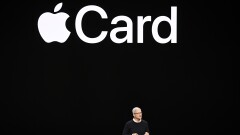Google's
Google's Android ecosystem allows the likes of Samsung and other manufacturers to develop their own apps that compete directly with Google's offerings. In an extreme example, the telcos behind the now-defunct Softcard mobile wallet went so far as to prohibit Google's own wallet app on their networks' devices.
While the competition seems less heated these days, it's clear that Google still has a lot of work to do to catch up to Apple.












